By Victoria Effiong
Many people, particularly the younger generation, are familiar with the line “If you no get money, hide your face,” from Davido’s 2017 hit song “Fia.”
Those who are unfamiliar with the song may have heard the classic biblical proverb “Money answers all things.”
People are tempted to believe that without the use of a formal legal tender, it is impossible to purchase, sell, or even acquire anything.
But that is not very correct. What if I told you that there is a place where money is not a big deal?
I can see you rolling your eyes in unbelieve especially when N5,000 is now equal to the value of N500 in 2015 and a dollar now exchanges for N710 in the parallel market.
If you’re still unsure, come with me on a trip to a part of Nigeria’s oil-rich Niger Delta where love is in plentiful supply and there are other ways to exchange goods and services besides money.
Welcome to the Ekuk Mba Barter Market in Edem Odo community of Akpabuyo Local Government Area of Cross River State.
It is believed to be one of the oldest and only barter markets still operating in Africa and a part of the rich cultural heritage of Akpabuyo people
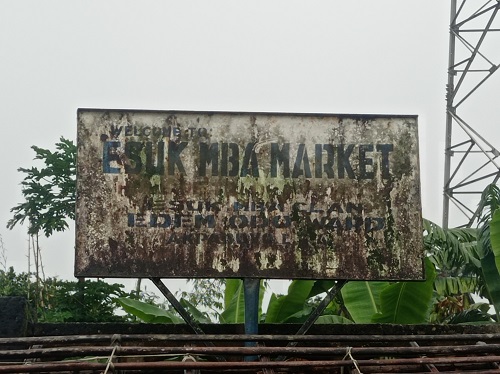
The market in the Edem Odo village is only a half-hour’s drive from Calabar, but the state of disrepair and neglect of Esuk Mba Market may sap your enthusiasm for the journey.
Neither the Cross River State Government nor Akpabuyo Local Government is doing anything to preserve the age-old market which has huge historical and tourism potentials for the country.
Esuk Mba Barter Market looks like a hunted place from a horror movie with many of the stalls abandoned because they do not have roofs.
The few stalls that are usable look like goat pens, the floor spots craters and the market paths pockmarked by flash flood water.
And when it rains, the traders have few choices including walking inside the fast-running storm water with many forced to wrap their wares up in polyethene sheets to keep the water from the leaking roofs from damaging them.
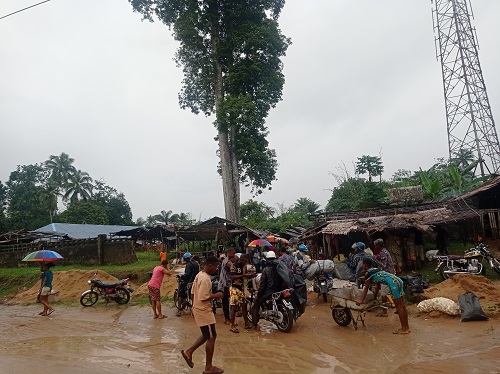
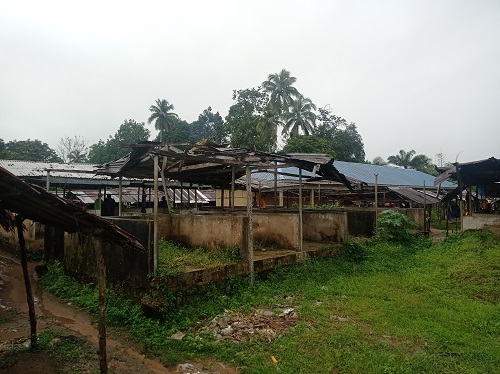
Despite all its downsides, Esuk Mba Barter Market opens quite early every Saturday and attracts a large number of buyers and sellers.
By seven am, you will find the market bustling with fishermen and farmers exchanging sea foods for farm products like cassava and garri etc.
It is advised that one comes early because it takes approximately one hour for the exchanges to take place.
Exchanges are done in large quantities and small quantities just like the conventional wholesale and retail trade.
But there is always something for everyone no matter the quantity.
It is a common sight to see people walk around with small stainless plates, trays, or plastic bowls where they put the small quantities of sea or farm produce, they want to exchange.
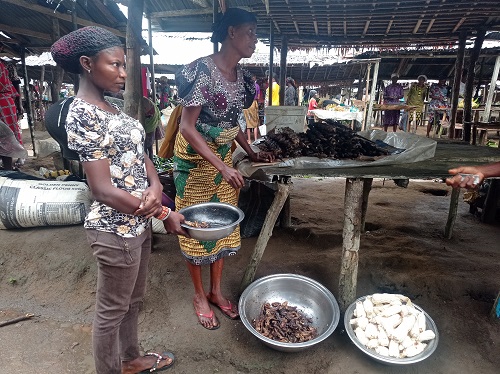
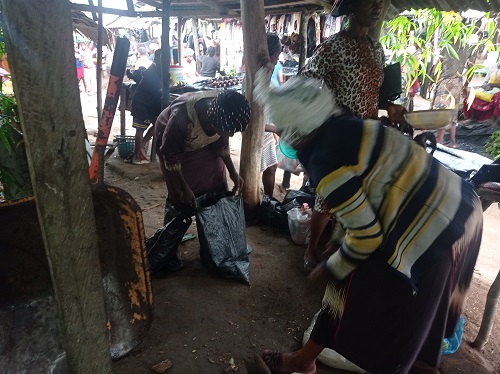
A person who patronises Esuk Mba Barter Market can cook a sumptuous pot of soup with the full complement of a swallow like cassava fufu of garri without paying for anything in cash.
All it takes is going around and exchanging items, such as a basket of cassava, with vendors of fish, meat, crayfish, palm oil, vegetables, and pepper until you have all the ingredients for soup and swallow.
A trader, Cornelia Asuquo, said she preferred the barter system because when she does not have money, she can still exchange what she has for what she desires.
“When you have money, you can go for the best but in a situation where you don’t have money you can do trade by barter to help yourself,” Mrs. Asuquo said.
She, however, added that with barter, it is difficult to get the exact value for the goods exchanged with other goods.
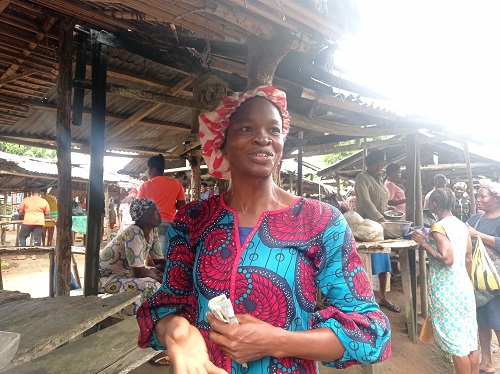
Another customer, Blessing Peter also believes that the system makes it difficult to get the real value for one’s produce but that people accept it because they lack the cash to buy what they want.
If she has a choice, Mrs. Peter said she would go for money
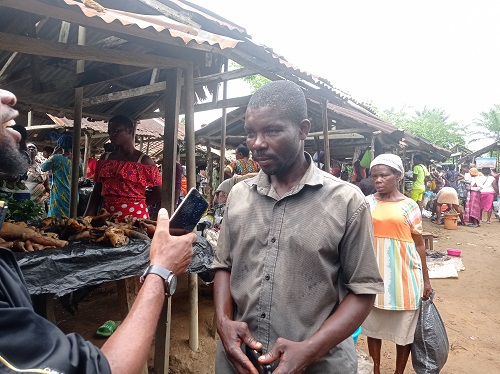
A representative of the market leadership, Chief Okon Essien, said he grew up to see his great-grandfather trading in that market.
Chief Essien expressed disappointment that despite series of letters to the state government to assist them preserve the market as a part of their culture and heritage, no action has been taken.
He also drew attention to the bad state of the road leading to Esuk Mba beach where the fishermen convey their sea produce the market for exchange.
“There is a huge ravine created by gully erosion that is threatening to wash the road away. If that happens it may stop fisherman from coming to Esuk Mba market” Chief Essien complained bitterly.
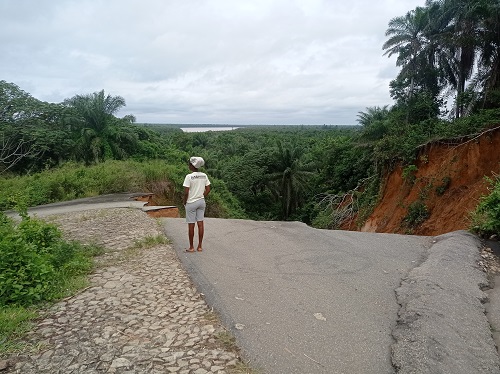
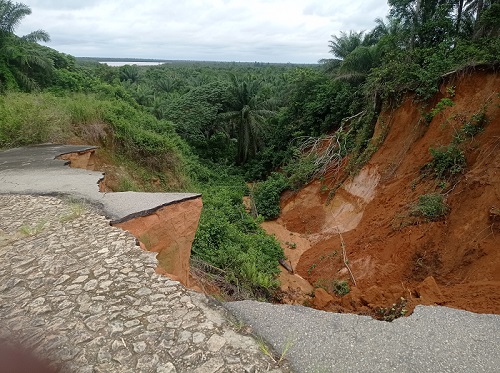
Other traders also shared in Chief Essien’s sentiments. They believe that a market of such repute should be well built and organised.
The traders complained that even when they pay for tickets just like other markets, thereby raising revenues for the state, the authorities have failed to repair and maintain the market.
When our correspondent contacted the Akpabuyo council official (names withheld) collecting revenue at the entrance of the market he confirmed that the traders pay N100 every market day (Saturday) in levies which are remitted to local government council.
When asked what the council is doing to restore and preserve the market, the official who pleaded not to be name because he has not been authorised to speak on the matter said, “The council is looking after the market and will continue to do so.”
But from the reality on ground shows the opposite.
Many have argued that being a major hub that appeals to local and international tourists, the Cross River State Government should take deliberate action to protect sites like Esuk Mba Barter Market from extinction.

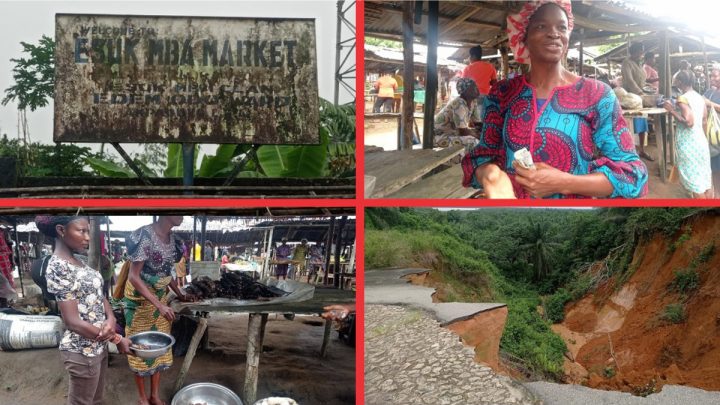

![[GUEST POST]: From Vegetable Consumption To Production](https://guardpost.ng/wp-content/uploads/2023/05/4fddaad4-e69d-4211-9554-770f72611413_800x531-155x165.webp)
